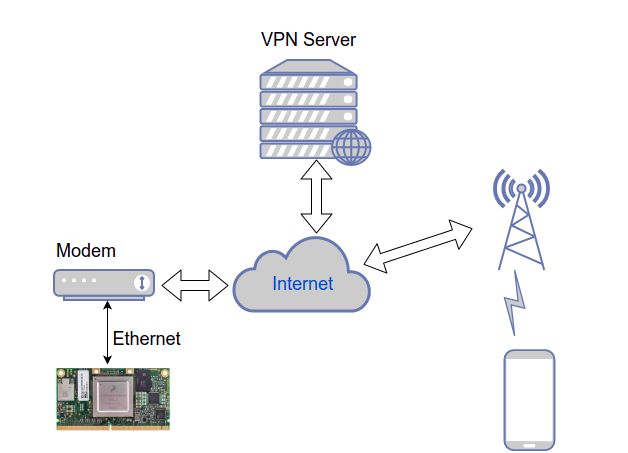Featured
Table of Contents
What Is Wireguard?
One of the most popular VPN services,, was the very first of the bigger VPNs to use Wire, Guard's procedure. Nord, VPN thought so extremely of Wire, Guard that it took things further and modified the open-source offering to produce Nord, Lynx, its customized protocol that uses one of the fastest VPN connections.
When comparing Open, VPN and Wire, Guard, it is very important to consider the strength of file encryption but likewise speed, and flexibility in regards to how quickly it can be integrated into various networks. is an open source procedure that was created in 2001, and despite its age most encryption tools support it, therefore it has become the most popular of all VPN alternatives on the marketplace.

These are all procedures that develop an encrypted tunnel in between a person's computer and a resource that they are connected to, like an application or a server someplace. This keeps the data being transferred in between them personal. How do I setup Wire, Guard? Setting up a Wire, Guard application is basic.
How Can I Use Wireguard® Protocol

What's better: IPSec vs Wire, Guard? There are lots of reports that Wire, Guard offers the same level of encryption while making connections much faster, but some business might prefer IPSec due to the type of cryptography algorithms it supports.
There are lots of free VPNs that support Wire, Guard, and it is also consisted of by default in the Linux kernel, so those who are proficient at shows can develop these types of encrypted connections merely by typing in the command line. Wire, Guard is likewise supported by subscription-based security products.

From then on all connections will be tunneled using Wire, Guard rather than alternative procedures. Is Wire, Guard safe to utilize? Though it is fairly brand-new on the scene, Wire, Guard's small codebase has been thoroughly tested and examined, and it's addition on the Linux kernel is an enormous vote of self-confidence in its safety.
Wireguard Vpn Protocol

Many VPN solutions that exist today were created a long period of time back, so they're quite sluggish and are overly engineered. Go into Wire, Guard, a task that puts security and simplicity first. Security scientist and kernel designer Jason Donenfeld got the concept for Wire, Guard in 2017 while in requirement of a sneaky traffic tunneling option that could be utilized during penetration testing engagements.
He set out to develop a totally new VPN protocol and execution that would avoid some of the design decisions that transformed other tunneling innovations into monster jobs with huge code bases and countless knobs and switches. For one, the Wire, Guard protocol does away with cryptographic dexterity-- the concept of using choices among various encryption, crucial exchange and hashing algorithms-- as this has actually resulted in insecure deployments with other technologies.
The protocol is also sneaky, as it does not react to any packages from peers it doesn't acknowledge, so a network scan will not expose that Wire, Guard is operating on a maker. what is wireguard protocol and how does it work?. The connection between peers, which can act as both clients and servers at the exact same time, go silent when there's no exchange of information.
Wireguard Vpn Protocol Is Fast. But Is It Good For Your ...
The main Wire, Guard application is for Linux and is available in the type of a kernel module. The code is intended to be easily auditable, with Donenfeld stating it can be checked out in an afternoon. Compared to Open, VPN which has more than 100,000 lines of code and depends upon Open, SSL-- another huge codebase-- the Wire, Guard kernel module has around 4,000 lines of code and the crypto code is built into it.
Aside from some community-supported Android firmware projects that incorporated the Wire, Guard kernel module, the non-Linux Wire, Guard implementations run in userspace and don't take advantage of the exact same efficiency as the kernel execution. That said, they still manage to match or exceed Open, VPN in many cases. what is wireguard protocol and how does it work?. The Wire, Guard kernel module is offered in the plan repositories of all major Linux circulations and even some customized ones.

6, released on March 29, 2020, Wire, Guard is among the innovations that are integrated in by default. This is also thought about Wire, Guard's very first stable release, or variation 1. 0.0."The last numerous weeks of 5. 6 advancement and stabilization have actually been exciting, with our codebase going through a fast security audit, and some genuine headway in terms of entering distributions," Donenfeld said in the release statement.
Best Vpns With Wireguard In 2023 (Only 4 Passed All Tests)
Donenfeld accepted the compromise and was mostly pleased with the result."It's not called 'Zinc' anymore, and some of the style decisions I liked aren't there, however I think the lion's share of what we were after exists, and a few other pieces need to be possible to upstream one at a time," he said in a message to the Wire, Guard task's newsletter at the time.
From then on, things moved relatively quickly, with numerous reviews, bug fixes and modifications in the course of a few months before the steady release. Windows doesn't offer a native TUN virtual gadget and while some drivers exist to achieve this from tasks such as Open, VPN or Soft, Ether, they were composed a long time ago and have various concerns.
Even prior to reaching a stable version Wire, Guard was currently being utilized in production. Some industrial VPN company provide Wire, Guard servers and there are ongoing efforts to construct mesh networking tools around it. It is not yet "enterprise all set" and it's uncertain if it will ever be because its designers are reluctant to include new functions that are only useful to a subset of users or cover edge cases since that's how other projects became overly complicated.
What Is The Wireguard Vpn And How Does It Compare To ...
Enterprises require to release and configure new software on a big number of computers in an automatic way, however the distribution of public secrets amongst peers and essential management are not covered by the Wire, Guard task itself and will have to be carried out as a separate tool.
Wire, Guard, that makes it more available than some exclusive innovations. Its open source likewise makes it much more friendly when setting it up on gadgets that do not support Wire, Guard natively. Wire, Guard has many. Being the most current VPN protocol does not come at a rate.
Wire, Guard needs to be an option with no shadows of doubt. Wire, Guard works by on the VPN servers so that the data packets would not be mixed among its users. In concept, this can significantly threaten the user's privacy as this is among the crucial vulnerabilities that a burglar could target.
Latest Posts
The 5 Best Business Vpn To Secure Your Team In 2023
The Best Free Vpn For Android
How To Troubleshoot Common Issues With Avg Secure Vpn